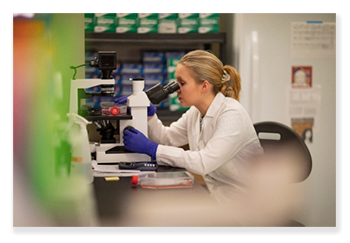HSP70 Is a Critical Regulator of HSP90 Inhibitor Effectiveness in Preventing HCl-induced Chronic Lung Injury and Pulmonary Fibrosis in Mice
Document Type
Abstract
Publication Date
3-29-2023
Category
PI
DOI
10.25776/j307-j782
Abstract
Rationale: Exposure to Hydrochloric acid (HCl) can provoke acute and chronic lung injury; because of its extensive use in the industry, accidental exposures occur and represent a threat to public health. Heat shock protein 90 (HSP90) is a chaperone involved in inflammation and fibrosis; its activity is inversely related to the levels of its co-chaperone HSP70. We hypothesized that administration of geranylgeranyl-acetone (GGA), an HSP70 inducer, or gefitinib (GFT), an HSP70 suppressant, alone or in combination with the HSP90 inhibitor, TAS-116, would improve or worsen, respectively, HCl-induced chronic lung injury and pulmonary fibrosis in mice.
Methods: C57BL/6J mice were intratracheally instilled with 2µl/g 0.1N HCl, and, after 24h, treated with 1) vehicle; 2) GGA, 200 mg/kg 3x/week per os; 3) GFT, 200 mg/kg 3x/week per os; 4) TAS-116, 7 mg/kg 5x/week per os; 5) TAS-116 + GGA; 6) TAS-116 + GFT. Molecular, functional, and histological outcomes were investigated 30 days after HCl.
Results: GGA reduced HCl-induced alveolar inflammation, activation (phosphorylation) of ERK and HSP90, the deposition of Fibronectin, Elastin, Collagen and TGF-β, the histological evidence of fibrosis (Ashcroft score and NLRP3 staining), and lung dysfunction (i.e. Pressure-Volume loops, Elastance (Ers) and Resistance (Rrs)). GFT, alone, did not affect HCl-induced toxicity. TAS-116 alone blocked HCl-induced chronic lung injury and, when co-administered with GGA, resulted in an increased HSP70 levels and slightly improvement in molecular signaling and lung function. Conversely, GFT impaired the antidotal effects of TAS-116 resulting in persistent inflammation, activation of HSP90 and pulmonary fibrosis.
Conclusions: TAS-116 represents a valid drug candidate for HCl-induced respiratory toxicity. HSP70 induction by GGA may represent a novel therapeutic strategy to potentiate the anti-fibrotic effects of HSP90 inhibitors.
Supported by the CounterACT Program, National Institutes of Health Office of the Director (NIH OD) and the National Institute of Environmental Health Sciences (NIEHS) grant number U01ES030674.
Repository Citation
Colunga Biancatelli, Ruben Manuel Luciano; Solopov, Pavel; Day, Tierney; Gregory, Betsy W.; Dimitropoulou, Christiana; and Catravas, John D., "HSP70 Is a Critical Regulator of HSP90 Inhibitor Effectiveness in Preventing HCl-induced Chronic Lung Injury and Pulmonary Fibrosis in Mice" (2023). 2023 Frank Reidy Research Center for Bioelectrics Retreat. 7.
https://digitalcommons.odu.edu/bioelectrics-2023retreat/7
ORCID
0000-0002-1174-3876 (Colunga Biancatelli), 0000-0002-1705-027X (Solopov), 0000-0002-5098-295X (Catravas)



Comments
Supported by the CounterACT Program, National Institutes of Health Office of the Director (NIH OD) and the National Institute of Environmental Health Sciences (NIEHS) grant number U01ES030674.